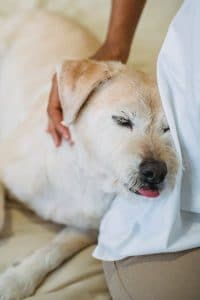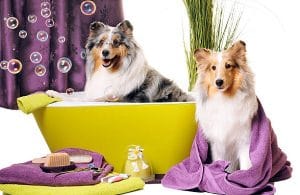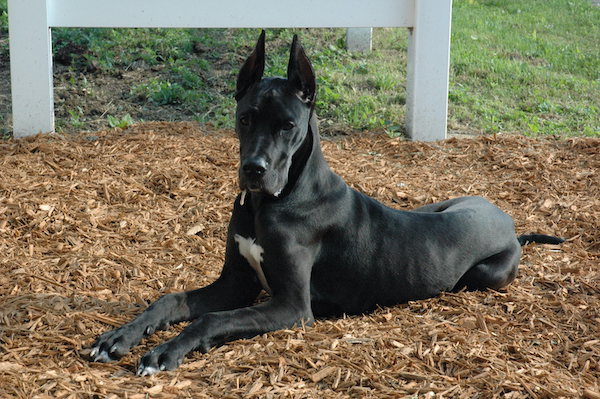
Taking care of a puppy is an immense responsibility. It requires dedication, patience, and time. If you consider taking home a puppy for the first time, it is essential to know what to expect when raising your new best friend.
This article aims to provide all initial information that anyone could need before bringing home their new dog. We will cover getting supplies, feeding, training, playtime activities, disease prevention, and grooming tips. Be sure to check back often as we will continue to update our Puppy Care Guide on how to take care of a puppy
The First Week or Two
The first few days with your new puppy at home can be overwhelming. It is important to remember that if you bring a young puppy (under six months of age) home, they will need to sleep for about 20 hours per day. This schedule varies depending on the breed and size of the dog, but it is essential to not over-exercise them during this time, or their muscles and joints will develop improperly.
It would help if you also kept in mind that puppies do not have complete control over their bladder and bowels until around four weeks old, so take extra care to prevent accidents during this time and expect accidents when you first bring them home.
The first thing you will want to do upon bringing your new puppy home takes them to your veterinarian. The vet can check for existing conditions and administer any necessary vaccinations required for their breed, age, and size. If you plan to keep your dog inside with you or mostly indoors, they likely will not need as many vaccines as an outdoor dog would.
Bedding
 Puppies are small, so finding the right-sized bed for them may be difficult at first. You can also consider using old towels or blankets, which are easier to wash if they become dirty or smelly. Ensure that whatever bedding you choose is soft enough for them to sleep comfortably during their early weeks of development but firm enough to keep its shape and support their weight as they grow. Consider finding a bed with removable and washable fabric.
Puppies are small, so finding the right-sized bed for them may be difficult at first. You can also consider using old towels or blankets, which are easier to wash if they become dirty or smelly. Ensure that whatever bedding you choose is soft enough for them to sleep comfortably during their early weeks of development but firm enough to keep its shape and support their weight as they grow. Consider finding a bed with removable and washable fabric.
Puppies also like to make a nest for themselves, so if you can find something naturally shaped into a den, then it may be preferable to purchase an entire bed of the same shape. If you cannot find anything suitable or your puppy does not seem to like making nests, then consider using another old towel or blanket folded upon itself to use as a base and then adding more blankets on top. You can smother the edges under other furniture or objects in your home so that the blanket stays put even when they move around on it.
Shampoo
Most dogs do not need frequent bathing but often play and roll around in the dirt or mud. You may also need to bathe them if they get sick, eat something that makes them vomit, or do their business indoors. Puppies are especially susceptible to fleas and ticks, so it is vital to use a shampoo with de-tangling properties (no matter how short the coat of your dog) as puppies tend to act like mini cats when it comes to batting at wet brushes and combs. It is also helpful to find one that is tearless as young pups have not yet mastered their coordination around anything that gets in their eyes.
Feeding Schedule
It is generally suggested that you should feed a puppy 3-4 small meals per day rather than one large meal because a small stomach has a reduced capacity so that it can process food more quickly. This will also avoid the common problem of them vomiting up their food after scarfing it down too fast.
 It would help if you left out dry puppy kibble for your puppy to snack on anytime they are hungry between meals. As a rule of thumb, always ensure that you provide enough kibble in their bowl to last at least 20 minutes before removing any uneaten portions.
It would help if you left out dry puppy kibble for your puppy to snack on anytime they are hungry between meals. As a rule of thumb, always ensure that you provide enough kibble in their bowl to last at least 20 minutes before removing any uneaten portions.
The type of kibble you choose is essentially preference; some owners prefer organic, grain-free, or all-natural (human grade) dog foods, while others do not view it as an essential factor. The main thing to remember when choosing a brand is simply whether or not your puppy will eat it! If your puppy is picky about their kibble, try switching to a brand that uses different protein sources, flavors, and shapes.
Each puppy’s palate is unique, so it may take some trial and error before you can find the perfect kibble for them.
Crate Training
It will be helpful to invest in a crate if you plan on transporting or confining your dog, but large crates are not ideal for use as living space. They are great for potty training pups because they can get familiar with using one area of your home for business while also preventing them from engaging in destructive chewing when left unattended.

You should get your pup used to spending time inside the crate at least an hour per day until they are no longer afraid of it. Try to ensure that they have access to water while inside the crate but do not feed them inside their enclosure because this will create a habit of using it as a food bowl.
Crate training also helps your puppy understand the difference between sleeping and eliminating when you are out for the day since puppies like to sleep in enclosed spaces. It is much easier for them to hold it if they are confined in their crate than wandering around loose if they must sleep on the floor or your bed at night.
Puppy Proofing
If you plan to know how to take care of a puppy when no one is home, then you will need to make sure that anything dangerous like human medications and sharp objects is put away. Some owners go so far as to purchase a gun safe to keep their firearms secured while they are away.
Puppies have very small bladders, so it is important never to leave them unattended outside of the crate when you cannot watch them for signs that they need to eliminate (e.g., sniffing around, circling). If your puppy eliminates in the house, then immediately take them outside on a leash and reward them with praise when they do their business correctly.
You should also clean any messes or accidents thoroughly with an enzymatic cleaner like Nature’s Miracle because most puppy urine contains pheromones that attract other canines back to the same spot (and this will not disappear overnight).
Finding The Right Vet
You should make sure to establish a relationship with a vet early on, ideally within the first week. The vet can help you determine your puppy’s immunization schedule while also providing you with any medication (such as heartworm pills) that are necessary for their wellness.
You should probably choose a different veterinarian than one who has been used by other family members because this ensures that they have received consistent preventative care across multiple pets over the years. You may also wish to find one who offers house calls or hospital visits so that they can come out to your home after an accident or an illness occurs.
How Often Should I Bathe My Dog?

Puppies should be bathed when they are dirty or stinky, but also every 2-3 months to prevent their fur from becoming too dry or brittle. If they are already accustomed to baths, then it will be easier for you to bathe them regularly.
Most owners bathe their pups 1-2 times per month, but you should examine your puppy to determine how frequently they need a bathe.
Conclusion
In summary, learning how to take care of a puppy can be time-consuming and expensive, but there are many benefits to having them in your life. Puppies require plenty of love, time, and energy to survive and thrive, but most owners would agree that the amount of happiness and joy they bring in return is more than worth the effort.




